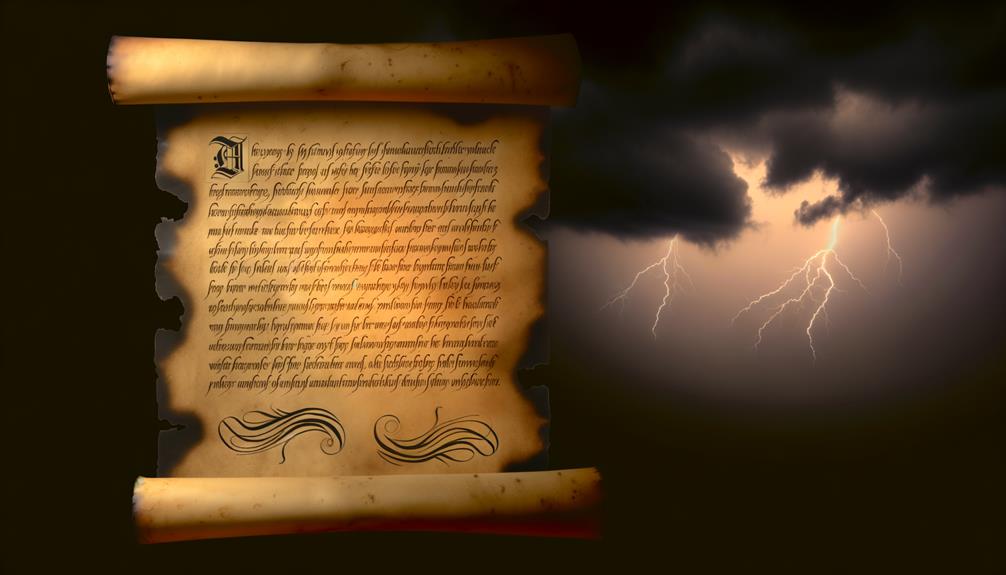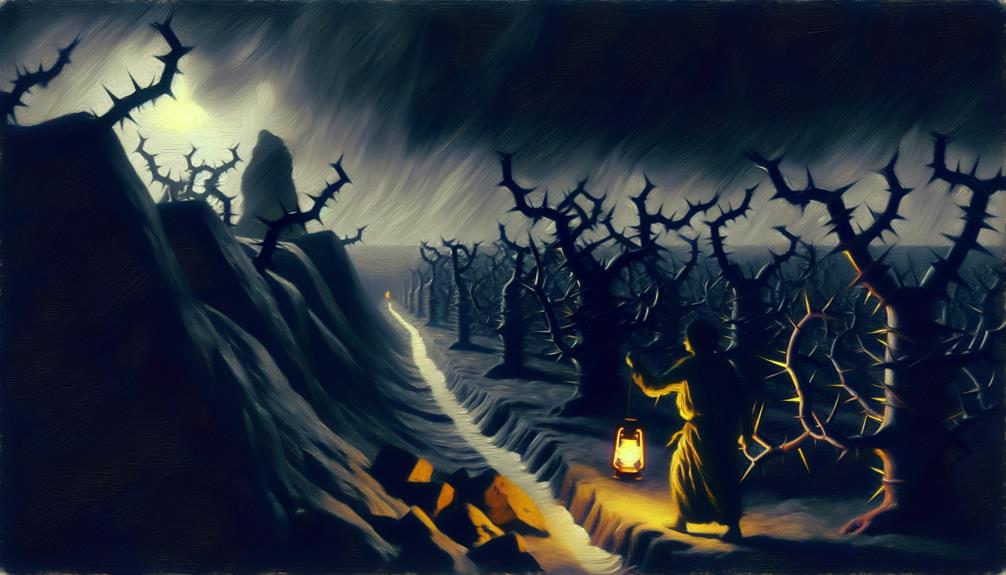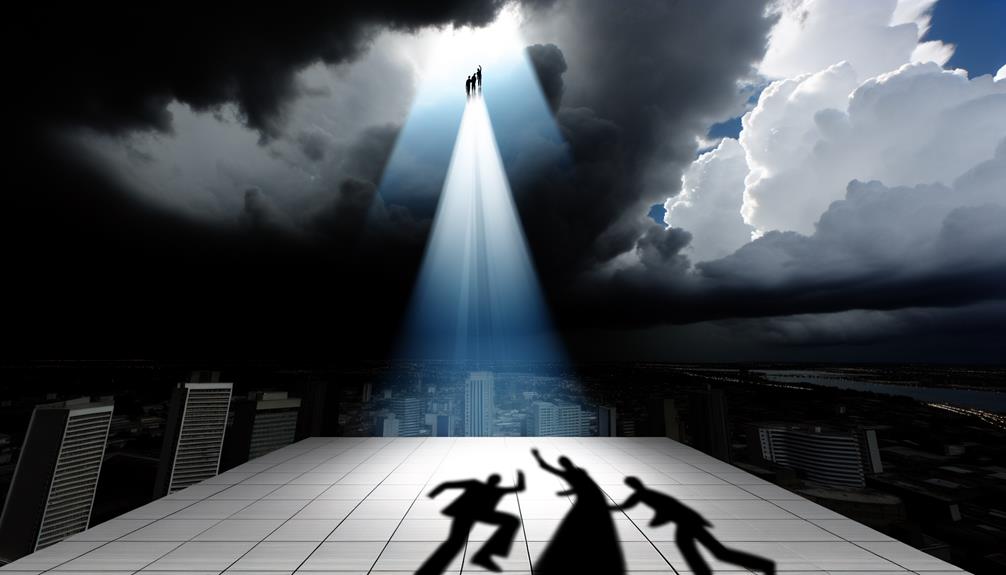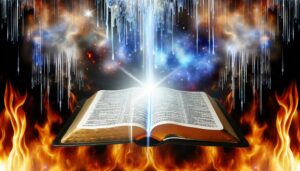No Rest for the Wicked Meaning Bible Verse: Divine Justice
The phrase “no rest for the wicked” derives from biblical texts, particularly Isaiah 48:22 and 57:20-21, which emphasize divine retribution and the inherent unrest associated with wicked actions. Isaiah 48:22 states, “There is no peace, saith the Lord, unto the wicked,” contrasting the fates of the righteous and the wicked.
Isaiah 57:20-21 further describes the wicked as akin to a troubled sea, unable to find peace. This underscores not only theological principles of divine justice but also the consequences of moral transgression.
Understanding these passages sheds light on the deeper nuances of moral accountability and perpetual turmoil for the unrighteous.

No Rest for the Wicked: Bible Verse Meaning and Biblical Truth
| Aspect | Details |
|---|---|
| Phrase Meaning | The wicked experience unrest and turmoil because they live apart from God’s peace. |
| Biblical Origin | Found in God’s message through the prophet Isaiah. |
| Key Bible Verse | Isaiah 48:22 – “There is no peace,” says the Lord, “for the wicked.” |
| Common Misconception | Some think it’s just a secular saying, but it comes from Scripture. |
| Related Bible Verses | Isaiah 57:20-21 – The wicked are like a restless sea. Proverbs 4:19 – The way of the wicked is like darkness. Romans 3:17 – The wicked do not know the way of peace. |
| Application in Faith | Warns against sin and urges repentance for true peace in Christ. |
| Spiritual Lesson | True rest comes only from a relationship with God, not worldly pursuits. |
| Encouragement for Believers | Seek God’s peace through faith, obedience, and righteousness. |
Biblical Origin

The phrase ‘No rest for the wicked‘ finds its origins in the Bible, specifically in the Old Scripture, where it is used to convey the concept of divine retribution and perpetual unrest for those who engage in immoral actions.
This notion is embedded within the broader theological framework that emphasizes moral conduct and the inevitable consequences of deviating from righteous paths.
The phrase underscores a timeless principle: those who perpetrate evil are destined to experience ongoing turmoil and dissatisfaction.
This biblical axiom serves as a moral caution, suggesting that ethical transgressions lead to a state of continuous unease, devoid of peace.
Consequently, the phrase encapsulates a profound warning about the spiritual and existential repercussions of wickedness, as outlined in the sacred texts.
Isaiah 48:22 Analysis
Isaiah 48:22 epitomizes the concept of divine justice, succinctly declaring, ‘There is no peace, saith the Lord, unto the wicked.’
This verse serves as a culminating statement in a chapter where God admonishes Israel for their transgressions and idolatry, juxtaposing the fate of the righteous and the wicked.
The absence of peace for the wicked underscores a fundamental biblical principle: divine retribution.
In this scenario, ‘peace’ signifies more than tranquility; it embodies wholeness, prosperity, and well-being, which are denied to those who persist in wickedness.
Consequently, Isaiah 48:22 not only highlights the moral consequences of actions but also reinforces the theological assertion that divine justice is inescapable, rendering the wicked eternally restless.
Isaiah 57:20-21 Insight

How does Isaiah 57:20-21 further elucidate the theme of divine retribution and the inherent unrest of the wicked?
This passage metaphorically describes the wicked as a ‘troubled sea,’ casting up mire and dirt, symbolizing their inherent turmoil and inability to find peace.
The sea’s ceaseless unrest mirrors the inner chaos of those who reject divine guidance.
Verse 21 emphatically declares, ‘There is no peace,’ underscoring the perpetual state of disquiet that afflicts the wicked.
This imagery not only amplifies the concept of divine retribution but also contextualizes the moral and spiritual consequences of wickedness.
The passage consequently serves as an enduring reminder of the inherent instability and unrest that accompanies a life estranged from righteousness.
Theological Implications

What are the broader theological implications of Isaiah 57:20-21’s depiction of the wicked’s unending turmoil and divine retribution? This passage underscores several key themes within biblical theology, highlighting the intrinsic connection between moral conduct and divine justice.
- Divine Justice: The scripture illustrates God’s unwavering commitment to moral order.
- Human Agency: The wicked’s unrest is portrayed as a direct consequence of their actions.
- Eschatological Warning: It serves as a precursor to ultimate judgment and the final state of the unrighteous.
- Moral Imperative: Encourages adherence to divine laws as a pathway to peace.
These themes collectively provide a nuanced understanding of divine retribution and human morality.
Modern Interpretations

In contemporary discourse, the phrase ‘no rest for the wicked‘ has permeated popular culture, often appearing in literature, music, and film to underscore themes of relentless pursuit and moral consequence.
This ubiquity has led to various misinterpretations and the propagation of myths that obscure its original intent.
Analyzing its relevance in today’s society reveals how modern audiences repurpose the phrase to reflect contemporary values and ethical considerations.
Popular Cultural References
Contemporary renditions of the phrase ‘No rest for the wicked’ often permeate popular culture, manifesting in various forms of media such as music, film, and literature. This reflects societal attitudes towards moral conduct and the relentless nature of modern life.
The phrase has been utilized to underscore themes of perpetual struggle and the consequences of immoral actions. Its presence is notable in:
- Music: Songs by artists like Cage the Elephant and Ozzy Osbourne.
- Film: Depictions in movies like ‘No Rest for the Wicked’ (2011).
- Literature: References in novels exploring moral dilemmas.
- Television: Episodes in series emphasizing continuous conflict.
These references illustrate the enduring relevance of the phrase in contemporary discourse.
Misinterpretations and Myths
Several modern interpretations of the phrase ‘No rest for the wicked’ have led to a variety of misinterpretations and myths, often diverging considerably from its original biblical context. Frequently, the phrase is misconstrued as a general commentary on the busyness of life or the inevitability of hard work, irrespective of one’s moral standing. This contemporary usage dilutes the phrase’s original meaning, which is rooted in the prophetic books of the Bible, particularly Isaiah and Proverbs, emphasizing divine retribution for sin.
| Misinterpretation | Original Context |
|---|---|
| General busyness | Divine punishment for sin |
| Hard work irrespective of morals | Moral and ethical behavior |
| Inevitable life struggles | Consequences of wickedness |
| Secular hardships | Spiritual ramifications |
These divergences illustrate how modern culture often reframes ancient texts, losing nuanced theological undertones.
Relevance in Today’s Society
The phrase ‘No rest for the wicked,’ despite its ancient origins, continues to find relevance in modern society through its varied interpretations and applications. This adage is often invoked in contemporary discourse to underscore the relentless nature of immoral actions and their inevitable consequences.
It is frequently employed in contexts such as:
- Corporate Culture: Describing the ceaseless work ethic often expected, sometimes unethically.
- Criminal Justice: Highlighting the ongoing repercussions faced by those engaged in unlawful activities.
- Psychological Stress: Illustrating the perpetual anxiety experienced by individuals with guilty consciences.
- Literature and Media: Serving as a thematic element in narratives exploring moral corruption.
Thus, the phrase remains a powerful tool for addressing moral and ethical considerations in today’s world.
Relevance Today

The phrase ‘No rest for the wicked‘ retains significant relevance today, particularly in the context of modern life stressors and the concept of moral accountability.
In an era marked by relentless pace and mounting pressures, individuals often feel an unending cycle of activity and responsibility.
Additionally, contemporary societal norms continue to emphasize the ethical consequences of one’s actions, reflecting the timeless nature of the adage.
Modern Life Stressors
Contemporary society is rife with stressors, from the relentless demands of digital connectivity to the pervasive pressures of economic instability, that exacerbate the feeling of perpetual unrest. These ubiquitous stressors contribute to an environment where achieving true rest becomes increasingly elusive.
Key modern stressors include:
- Workplace demands: Extended hours and high performance expectations.
- Digital overload: Constant notifications and the pressure to be always available.
- Economic pressures: Job insecurity and the rising cost of living.
- Social comparisons: Amplified by social media, fueling feelings of inadequacy.
Understanding these factors is essential for contextualizing the biblical notion of ‘no rest for the wicked’ within the framework of contemporary life.
Moral Accountability Today
In an era marked by rapid technological advancements and shifting societal norms, moral accountability remains an essential element for fostering ethical behavior and social cohesion.
Contemporary society faces unprecedented challenges, from digital privacy concerns to global ethical dilemmas. The timeless principle of moral accountability, echoed in biblical teachings such as ‘No rest for the wicked,’ underscores the enduring relevance of ethical conduct.
By holding individuals and institutions accountable, we guarantee a framework for justice and integrity. As we navigate the complexities of modern life, the need for steadfast moral principles becomes increasingly significant.
Consequently, moral accountability not only bridges historical wisdom with present-day exigencies but also cultivates a conscientious and responsible society.
Conclusion
The phrase ‘no rest for the wicked‘ finds its roots in the biblical scriptures of Isaiah 48:22 and Isaiah 57:20-21, symbolizing a perpetual state of turmoil for the unrighteous.
Theologically, it underscores the divine principle of justice and moral consequence.
Modern interpretations extend its relevance, illustrating the ceaseless struggle against moral failings.
This axiom, like a relentless tide against a rocky shore, remains pertinent today, echoing the enduring consequences of ethical transgressions.






